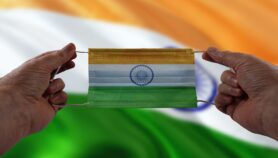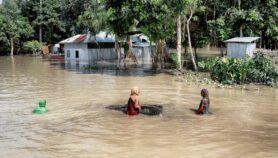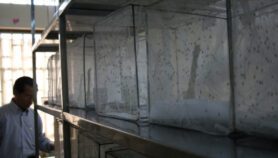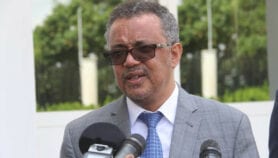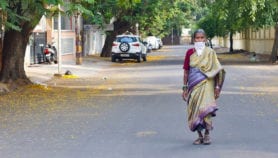By: Melanie Sison
Send to a friend
The details you provide on this page will not be used to send unsolicited email, and will not be sold to a 3rd party. See privacy policy.
[MANILA] Data, coupled with indigenous knowledge, should be at the heart of developing climate change initiatives. This was a key takeaway from the sixth Asia-Pacific Climate Change Adaptation Forum, held 17—19 October in Manila under the auspices of the Asian Development Bank (ADB).
Speakers discussed how data serves as evidence on which policies are based and how limitations in this area may hamper policies and appropriate actions.
“Science and traditional knowledge not only can work together but also work better to build community resilience”
Florence Kuali-Iautu, Vanuatu Meteorology and Geohazards Department
"Even now, people make policies based on anecdotes. Believe in science, do science, sponsor science, and be sure that we're customers and custodians of science. Then the policies will be formulated in such a way that they are practical and implementable," said Buddhi Marambe, national experts committee on climate change, Sri Lanka.
Ibrahim Mohamed, deputy director-general of the Maldives’ Environmental Protection Agency, said there are costs to implementing strategies that are not anchored on data and science. "Adaptation policies are very expensive for small island nations. These also have high opportunity costs in that they reduce the fiscal capacities to pursue other adaptation policy objectives," he said.
Beyond global statistics, localised data is critical in developing plans and policies that are specific to affected areas. "Achieving climate change resilience is context-based and community-specific. Local governments must understand climate science and empower the people to help address community risks and vulnerabilities," said Rachel Herrera, commissioner of the Climate Change Commission, Philippines.
Nonetheless, the current lack of data should not prevent key stakeholders from taking action, given the urgency of climate change. "Uncertainties are inevitable [but] should not be an excuse for inaction. We can work with uncertainties by characterising and managing them," said David Salter, ADB specialist.
The blending of science and indigenous strategies was recognised as an effective strategy in building resilience. "Science and traditional knowledge not only can work together but also work better to build community resilience," said Florence Kuali-Iautu, communication officer of the Vanuatu Meteorology and Geohazards Department.
The three-day event, attended by over 1,000 participants from 62 countries, had representatives from government agencies, NGOs, and the private sector.
This piece was produced by SciDev.Net’s Asia & Pacific desk.





